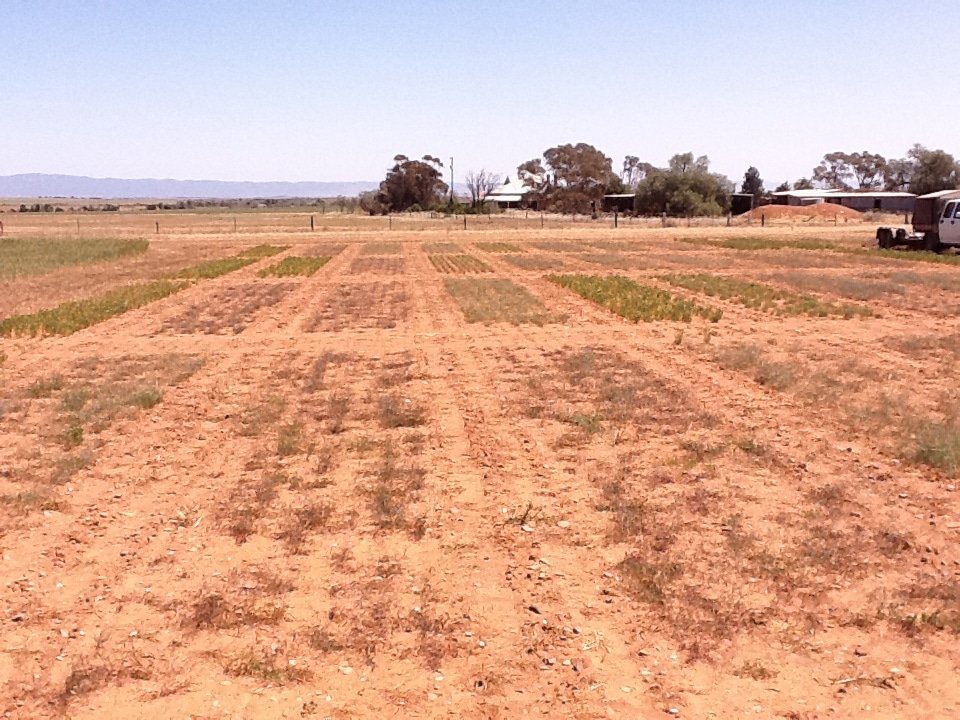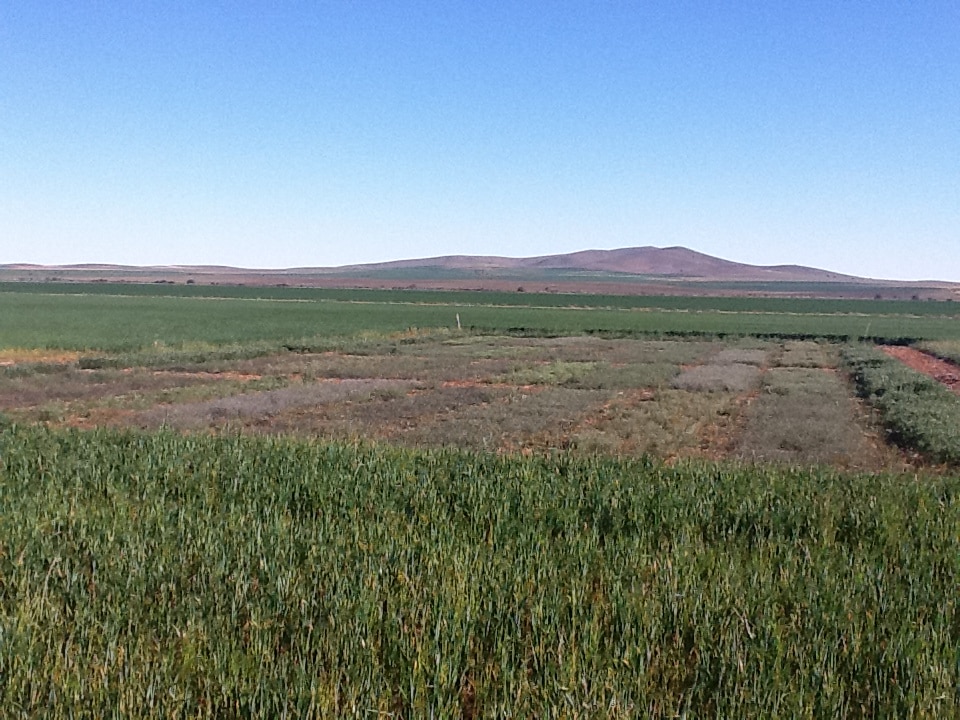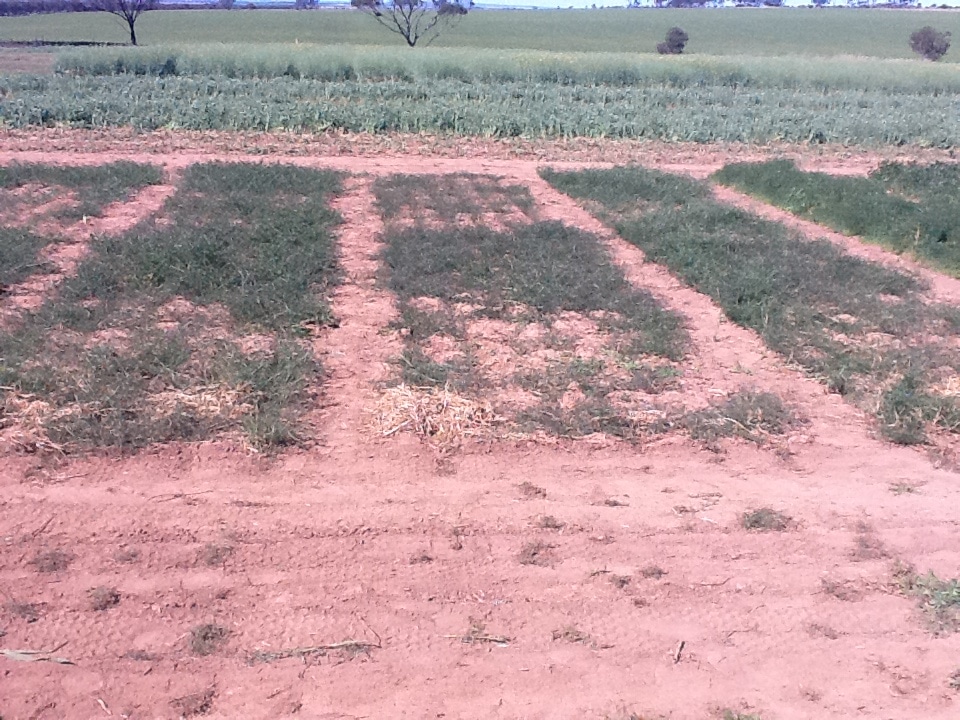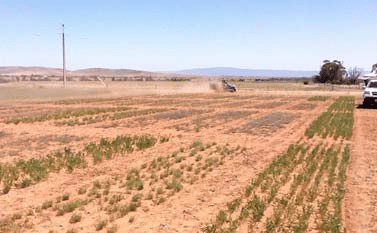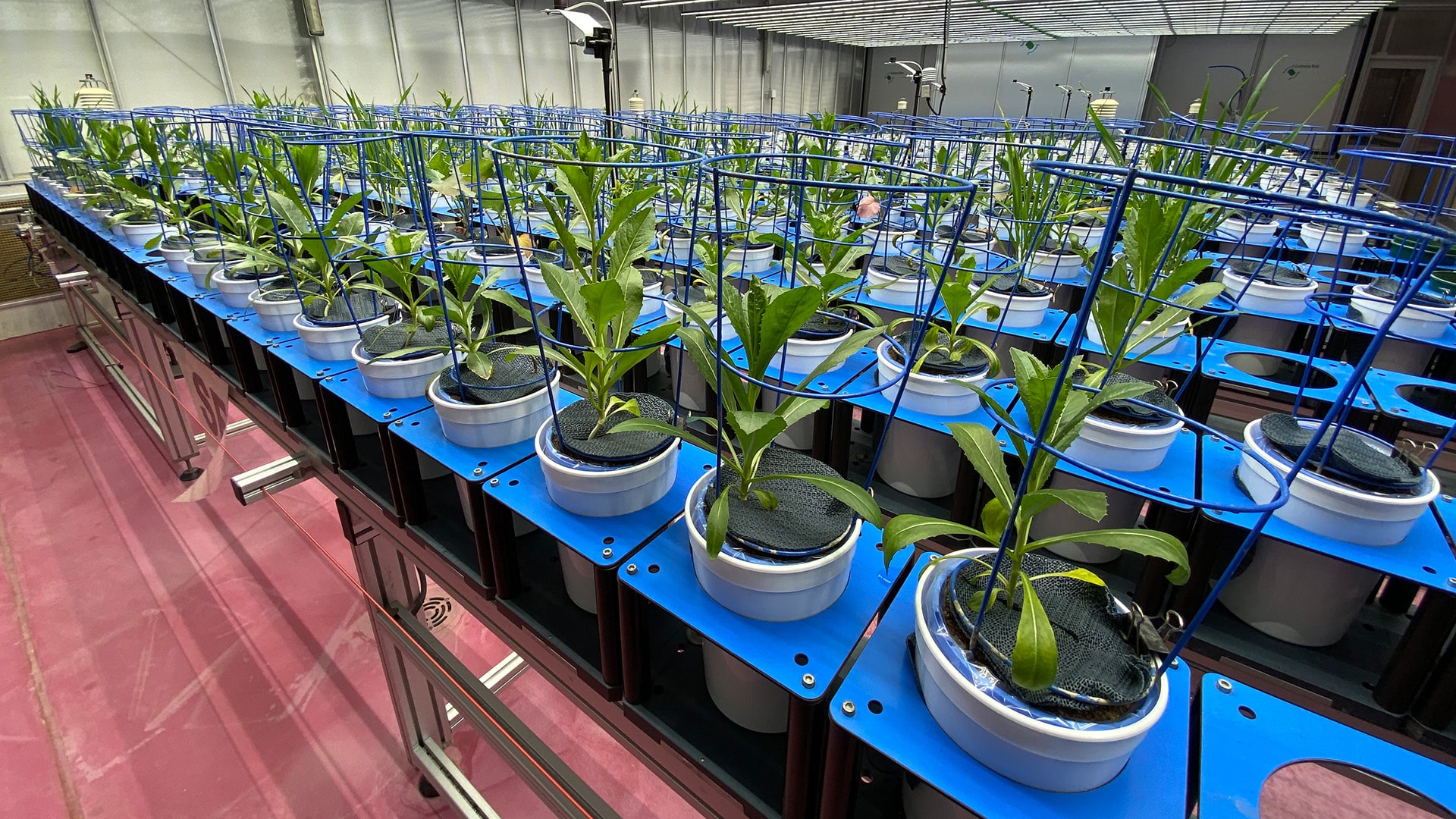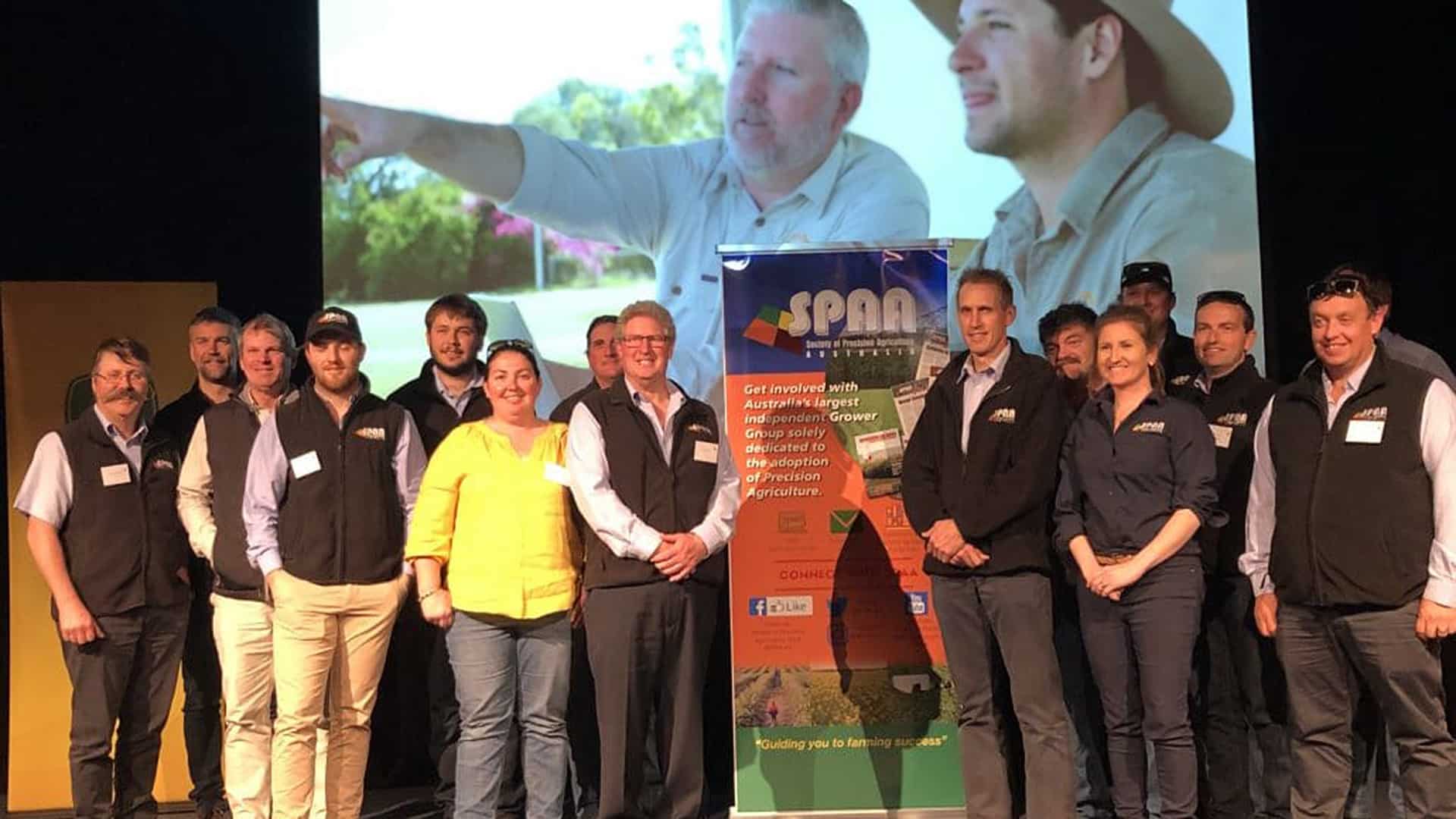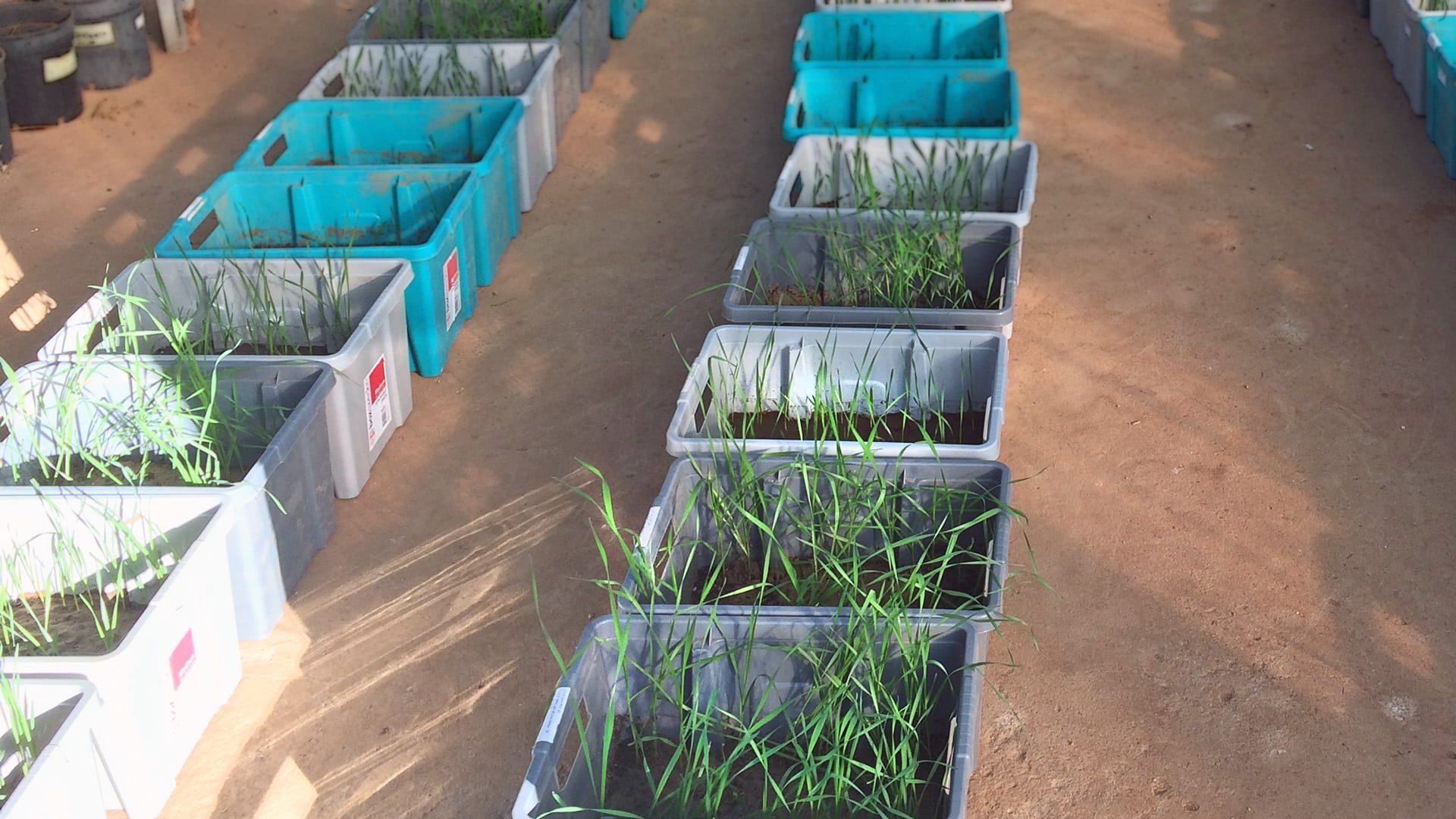START
FINISH
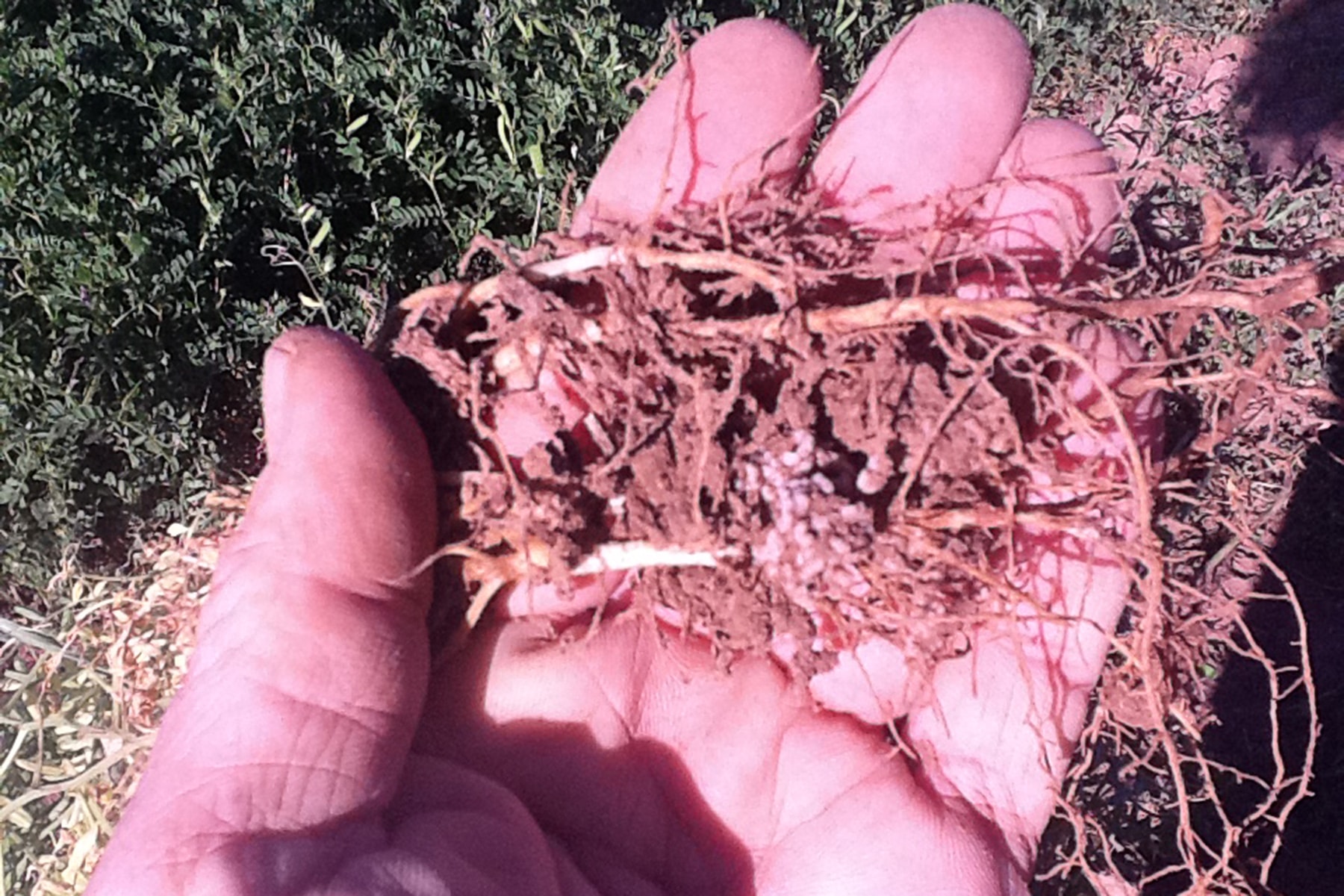
Summary
SARDI assessed four novel vetch species to determine their potential for release in South Australia’s low rainfall zone but they failed to outperform or offer any significant advantage over the standard common vetch variety, Morava.
Background
The idea to trial new vetch varieties arose following senior tech breeder, Rade Matic’s, research trip to the Middle East. Visual observations, in combination with data received from the International Centre for Agricultral Research in Dry Areas (ICARDA, Syria) and the 2007 Forage Legumes Symposium at Novi Sad, Serbia, reported that these species were considered some of the best dry matter producers in very low rainfall areas (including Syria, Jordan, Egypt and Cyprus) and warranted testing in Australia.
Research Aims
- Assess four novel species of vetch – Vica articulate, V. palaestina, V. macrocarpa and V. orbicularis – for their agronomic, disease and quality performance in the low rainfall zone.
- Trial these species in replicated trials in the upper Eyre Peninsula, the Upper North and the SA Mallee.
- Test feed quality of dry matter and grain, as well as hard seededness and evaluate the disease resistance for advanced lines.
- Provide growers with high yielding vetch varieties that are well adapted to sandy alkaline soils in low rainfall environments.
- Provide producers and users with agronomic packages for new germplasm.
In The Field
Trials were conducted in 2011 on all advanced material selected from a previous project (S0708R). The material was assessed in replicated trial sites at Morchard and Charlick (near Strathalbyn). Only two sites were sown due to limited seed availability.
Four sites were sown in 2012 and 2013 in low rainfall regions at Lameroo, Morchard, Minnipa and Strathalbyn. Fodder samples were taken from all lines in trial and analysed by Feedtest for fodder quality.
Results
- V. articulate and V. macrocarpa were removed from trials after the 2011 season because they did not meet targeted traits or requirements.
- The species trialled all showed excellent results for feed quality and were at the higher end of quality levels expected for legume hay.
- Yields at all sites, except for Charlick, were disappointing. The soft finish at Charlick enabled good, late season growth.
- Cutting early at Minnipa and Morchard and again one month later did not produce significant regrowth.
- Mixtures of new species and common vetch were trialled at Lameroo, Morchard and Charlick. The common vetch completely outcompeted the other species and choked them out after satisfactory emergence from all lines.
- Morava vetch outyielded all lines in the trials. All species, particularly V. palaestina, showed very poor early vigour and establishment, which was worse at the cold sites, like Morchard. V. articulate shattered before full maturity and was low yielding.
- As a prostrate plant type, V. macrocarpa lacked enough bulk to provide adequate fodder or groundcover. V. orbicularis initially showed promise in dry matter production at Morchard but had very poor seed production.
- While V. palaestina had excellent fodder quality and hay yields, it was a very poor competitor with weeds, and when planted in combination with any other crop it is out competed and fails to develop.
- V. palaestina and V. orbicularis were very susceptible to rhizoctonia.
- All lines were susceptible to Simazone, post sowing pre emergence when significant rainfall was recorded post emergence at Lameroo.
- No lines were selected for release as a new variety so no seed was multiplied and an agronomy technical package for growers was not required.
Project Participants
SARDI: Stuart Nagel (Senior Research Officer) and Gregg Kirby (Research Staff)
The Problem
South Australian growers in lower rainfall areas are continually looking for new legume options that are better adapted to local conditions and with improved agronomic, disease and quality performance to replace current varieties, such as Morava.
The research
SARDI assessed four Middle Eastern vetch varieties to see whether they were suitable for South Australian low rainfall environments.
More information
Stuart Nagel, SARDI Senior Research Officer, Vetch Breeding
T: 0407 720 729
E: stuart.nagel@ sa.gov.au

